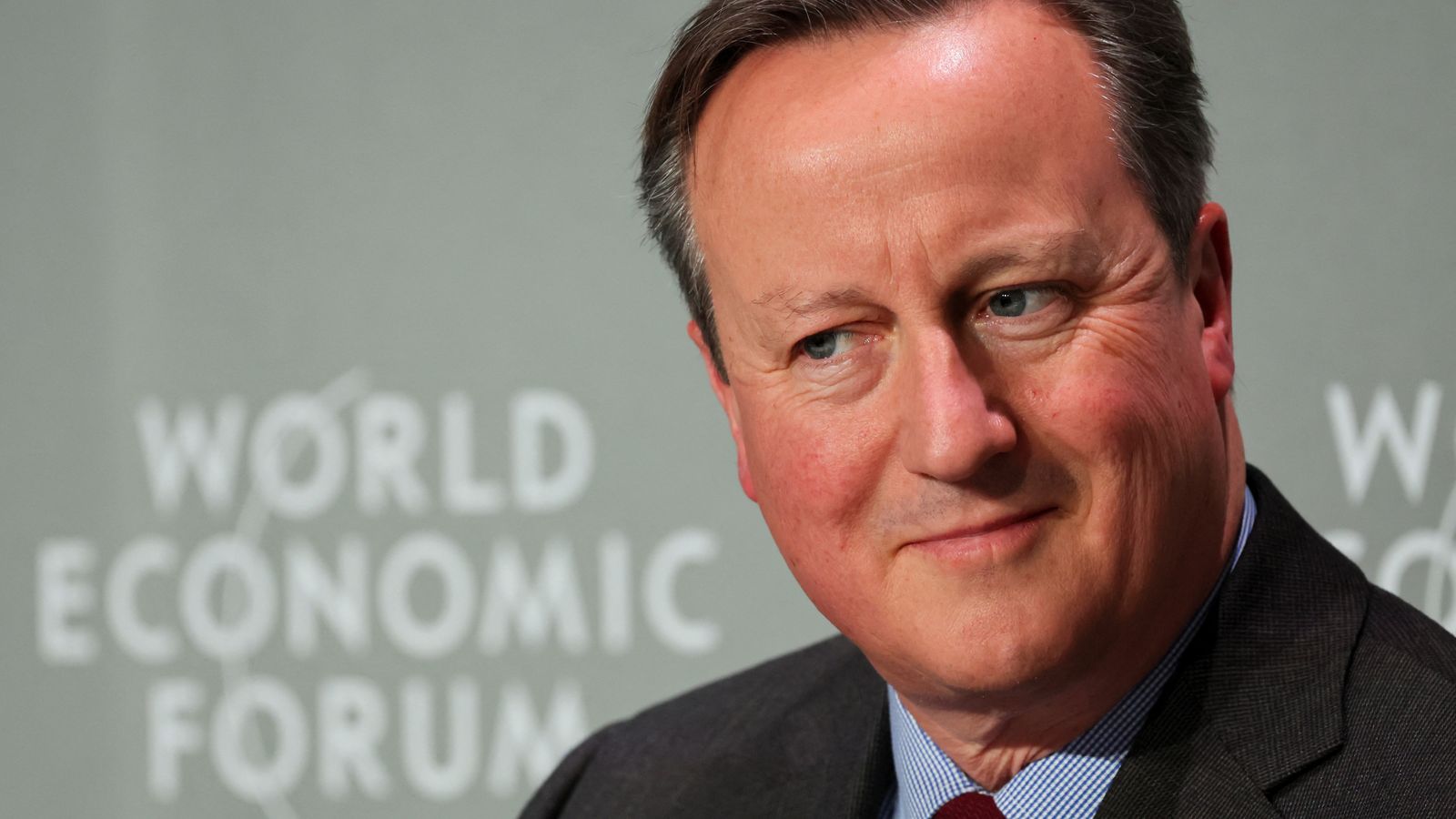Lord Cameron has dismissed suggestions he could lead the Conservative Party once more, after former MP Nadine Dorries alleged there was a “plot” for him to succeed Rishi Sunak in the event of a general election loss.
The foreign secretary told Times Radio that the former culture secretary – who is also the author of several fiction and non-fiction books – had “always been a much better novelist than a political forecaster”.
“I think I’ll leave it at that,” he said.
Lord Cameron was speaking while visiting the World Economic Forum in Davos, where he called for an “immediate pause” in the Israel-Gaza war so a “sustainable ceasefire” may follow.
He also admitted that Britain’s relationship with Iran was “very difficult” owing to its support for the Houthi rebels, who have been targeting the UK’s commercial shipping operations in the Red Sea.
In a post on X earlier this week, Ms Dorries, a Boris Johnson ally who wrote a book depicting a plot to oust him as prime minister, said: “I’m calling it now.
“The plan is to install David Cameron as next leader of the party following defeat in the GE.
China criticises UK and US for congratulating winner of Taiwan election
‘Nonsense’ for South Africa to accuse Israel of genocide, says foreign secretary
David Cameron warns of ‘danger and instability’ in the world as he defends UK strikes on Houthi targets
“THE PLOT.”
The foreign secretary met Iranian foreign minister Hossein Amir-Abdollahian on Wednesday to discuss the situation in the Middle East as well as clashes between Iran and Pakistan, who have accused each other of harbouring terrorists.
On Thursday, fighter jets from the Pakistan Air Force undertook a series of coordinated and targeted strikes using extended-range munitions against seven terrorist hideouts in the Sistan and Baluchistan province of Iran.
They came in response to Iran using missiles and drones on Tuesday to hit what they claimed were terrorists in the Sabz Koh village, around 28 miles from the Pakistan-Iran border.
Lord Cameron told reporters: “Britain has a very difficult relationship with Iran, and we hold them responsible for a lot of the instability in the region.
“But I think one of the jobs of a foreign minister is to meet and deliver some very clear messages. And that’s what I did yesterday, particularly about the situation in the Red Sea, because this is of global interest.
“The freedom of navigation is a vital freedom, and acting in self-defence when you’re attacked in the way that ships have been is absolutely right. So clear message, clearly delivered.”
Lord Cameron was appointed to his role in Rishi Sunak’s reshuffle last November, taking on the role of foreign secretary seven years after he resigned as prime minister.
Asked by Times Radio whether he had found it hard to play “second fiddle” to the prime minister, he replied: “No, not at all actually, because he’s a very clear boss.
“He’s easy to work for because he knows what he wants. He chairs cabinet meetings with great efficiency. He’s read everything, understood everything.
“And he has a pretty clear view of what he wants, so that’s a good boss.”
Read more:
Rishi Sunak’s Rwanda plan has become a leadership issue as much as a policy one
‘Not surprising’ people felt ‘misled’ by government’s asylum claims – UK stats watchdog
Lord Cameron’s visit came just hours after Mr Sunak survived a minor Tory rebellion to get his controversial Rwanda bill through the House of Commons on Wednesday night.
Asked whether he felt Britain was “selling itself appropriately” at Davos in the year of a likely election, he said “investor after investor” has said Britain was “still a great country to invest in”.
“In many ways, Britain is a good and safe country to invest in with the rule of law and with a business-friendly government. I’m actually getting quite positive interest in Britain right here in Davos today.”










